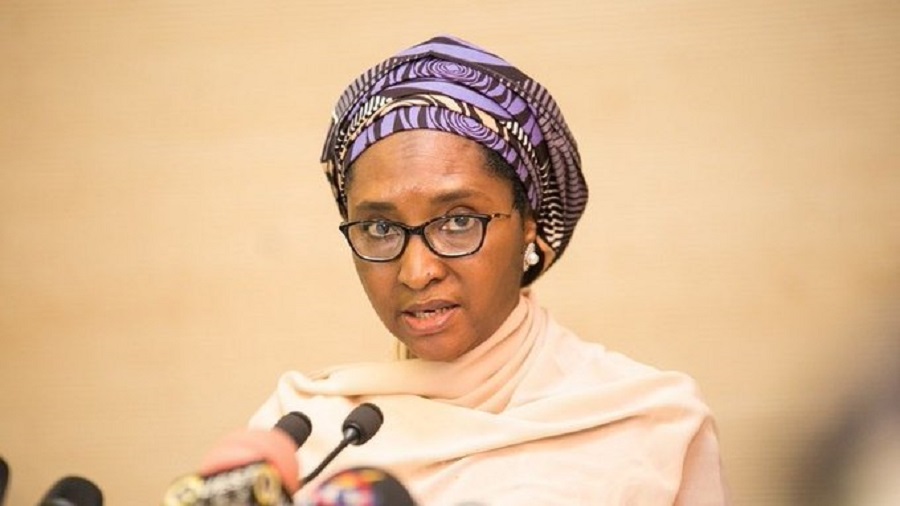It suffices to start this piece by stating unequivocally that the ‘new dept’ of Nigeria’s economic woes is so frightening and deep-seated to the extent that it is capable of shaking the confidence of any team of economic advisers no matter their grip on the theories and practice of economics.
It is so systemic and endemic that it can erode whatever faith the President had in himself, his cabinet, the machinery of governance and the government. Nigeria is bleeding from all sides of its body politic. This crisis stems mainly from issues that revolve around fisc and money.
The chain is too long and its linkages are strong and complex. Yes, they are matters that relate to revenue, expenditure and consequences of their operations; fiscal deficit and its financing mechanism through banking and non-banking sources.
This throws up the stock, structure and trend of public debt as well as the nature character, experience and competence of all the institutions and individuals charged with the responsibility of managing those variables.
Weakened fiscal and monetary authorities such as the Ministry of Finance, Central Bank of Nigeria, Ministry of Budget and National Planning, Budget Office of the Federation, Debt Management Office and Federal Inland Revenue Services of today will struggle with ideas on how to redirect the Nigerian economy.
As of June 30, 2015, Nigeria’s total debt stock stood at 12.85 trillion. It rose from that moderate level to a staggering 49.85 trillion Naira on March 31, 2023.
This does not include the Ways and Means facility to the federal government which stood at 22.7 trillion Naira.
After securitization and additional borrowing by the government, the public debt stock moved to a walloping figure of 87.38 trillion Naira as of June 30 2023 and further to 87.91 by September 30, 2023.
This reflects a shocking 114.35 billion in dollar terms, at an official exchange rate of US$1 to N768.76. A very interesting jump, isn’t it? All these extraordinary changes in fiscal variables happened in just eight years, from 2015 to 2023.
Yes, just in eight years. A period too short for such a momentous surge in economic parameters especially for an economy that exists on the fringes, and yet a period long enough to translate the huge magnitude of public debt into a standard of living that will put a smile on the faces of a greater number of Nigerians.
But that cannot happen so long as you keep treating loans as revenue receipts such as taxes, commercial revenue, fines and penalties.
Loans are capital receipts which should create capacity and make a net addition to the availability of goods and services in the economy.
That explains why John Mynard Keynes, the man who revolutionalised public finance operations by taking away the subject from the Classical principles of ‘Sound Finance’ to a new level of ‘Functional Finance’ which for the first time in Economic History introduced deficit financing as a panacea for economic wellbeing, emphasized in his General Theory of Unemployment published in 1936 that it is better for a nation not to borrow than to mismanage the amount so borrowed. Using loans to fund consumption stands out as a public debt mismanagement strategy.
Nigeria’s public debt management approach is partly a ‘Debt Mismanagement Strategy’ which incapacitates the country and exposes it to the inevitability of repayment infidelity.
Interestingly, those years of huge quantum leap of public debt correspond with the new era of Nigeria’s fiscal deficit. Hence, the country’s budget deficit rose from 1.62 trillion Naira in 2015 to 10.78 trillion in 2023.
This does not include the deficit arising from the supplementary budget of President Tinubu. This translates to a percentage increase of 565.43%. That is a simple average increase of 70.68%.
It is, therefore, very clear that the fiscal deficit during this period was funded by ‘new borrowing’. Those eight years will always stand out in the economic history of Nigeria as a period when the economic managers of the country laid the foundation for disproportionate instability in the polity.
Certainly, what gives rise to genuine and legitimate borrowing is deficit financing which occurs consequent on two fundamental reasons. One, dissaving or deficit in the Revenue Account.
Two, deliberate attempts by the government to expand economic frontiers to usher in growth and development. While the former gives rise to the urge to finance consumption from loans the latter serves as a means of increasing the welfare of the citizenry through increased economic activities and their consequential impact on job creation and increased income by investing the loans on socio-economic infrastructure and capital goods.
Loans are requitable capital transfers which are laden with liability in the form of repayment of the principal and interest on the same in addition to a relative loss of sovereignty to International Financial Institutions, individual countries and consortiums of lenders. They should be prudently managed.
It is indeed, doubtful if the 87.38 trillion Naira of Nigeria’s public debt stock has meaningfully created economic opportunities for Nigerians.
Instead, it has elevated the degree and dimension of liability which the current and future generations of Nigeria must live with.
At the moment its impact is ravaging the economy with its ugly trail on the monetary architecture of the country especially, money supply and its associated variables.
The stability of monetary aggregates is critical and central to macroeconomic management. This is mainly because instability in those variables is automatically translated to the mainstream economy.
The banks by their power to grant loans have a derived power to create credit and in the process influence money supply, the broad money.
The implication of this is enormous in an economy that is struggling to inspire confidence to the people.
This explains why granting of loans to individuals or businesses must be thoroughly supervised by the CBN as such facilities would imply the creation of money and an increase in broad money supply which impacts directly and proportionally on inflation.
The CBN in its Monetary Series CBN/MPD/01/2006 defines money supply as ‘’comprising narrow and broad money.
Narrow money (M1) includes currency in circulation with non-bank public and demand deposits or current accounts in the banks.
The broad money (M2) includes narrow money plus savings and time deposits, as well as foreign-denominated deposits. The broad money measures the total volume of money supply in the economy’’.
Broad Money supply stood at 16.39 billion Naira in year 2000. It then rose from there to 18.74 billion in 2015 and further to 20.91 billion in 2016.
It climbed further to 29 billion in 2020 but by 2023 the figure stood at 66.4 billion Naira. This represents a 254.32% increase between 2015 and 2023.
It implies a simple average percentage increase of 31.79. This is huge and fundamentally points to expansionary fiscal policy actions of the Central Bank of Nigeria.
But the major issue here is about the mechanism of money creation which caused the upward trend of the broad money supply.
Who supervised those operations? Did he understand the consequences of his action on the macroeconomy?
The surge in fiscal deficit was expected, accompanied by a corresponding jump in public debt stock which in turn was followed by an equally tremendous rise in broad money supply.
Recall that 22.7 trillion (25.98%) of the 87.38 trillion Naira public debt was the ‘Ways and Means’ facility which was later securitized.
We should also note that the way and manner in which these ‘overdrafts’ were made are scandalous in their violation of the extant rules as contained in the CBN Act of 2007 as well as in their destruction of the fundamental principles of monetary policy.
Those actions simply transformed the CBN, more or less into the monetary authority of a black (underground) economy as the 22.7 trillion Naira ‘Ways and Mean’ facility created an impact in the economy in the same way and magnitude counterfeit currencies do.
They are neither backed by assets nor by goods and services. They are simply floating papers and instruments with counterfeit promises which have exacerbated the doubt in the minds of everyone on the functionality of the Naira as a store of value and means of payment.
Let me reiterate the point that fiscal policy and monetary policy are the twin pillars of macroeconomic policy the design and operations of which must be handled meticulously to avoid driving solid nails into the coffin of Nigeria’s macroeconomy. Unfortunately, we think differently in Nigeria.
We play politics with everything including the appointment of head of the fiscal and monetary authorities and their agencies.
If you make a novice the Minister of Finance and a charlatan the Governor of the Central Bank and still go ahead to surround them with pseudo-politicians and ethno-religious watchdogs, then you have ab initio revealed your intention to ‘kill’ the economy, knowingly or unknowingly.
*Isaac Chii Nwaogwugwu, PhD is a Public Finance Expert and an Associate Professor of Economics at the University of Lagos




















Our economy is on the brink of collapse… God help us. Great article
The truth has always been told about the economic problem of Nigeria and the best recovery Mechanism have been provided by experts of your type butwho cares. I dont want to weep for Nigeria again this year .let’s wait until the true educated Nigerians take over the leadership of the nation.N